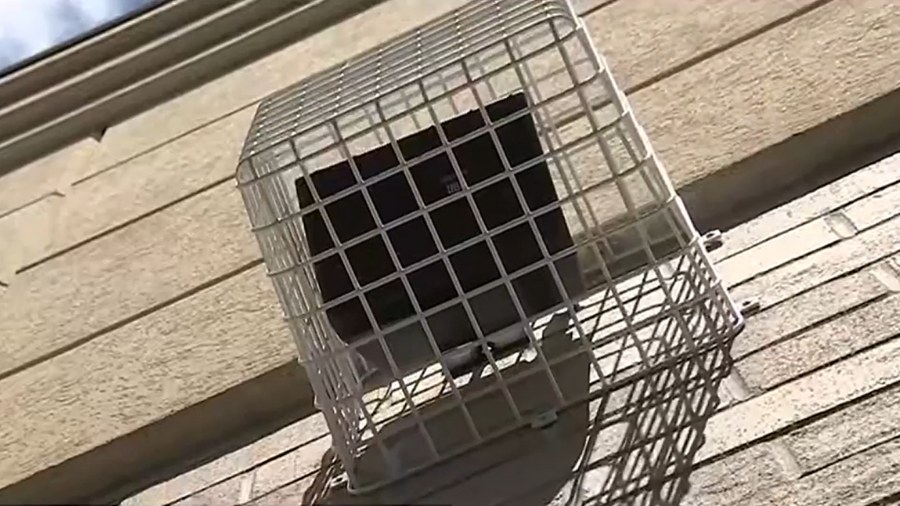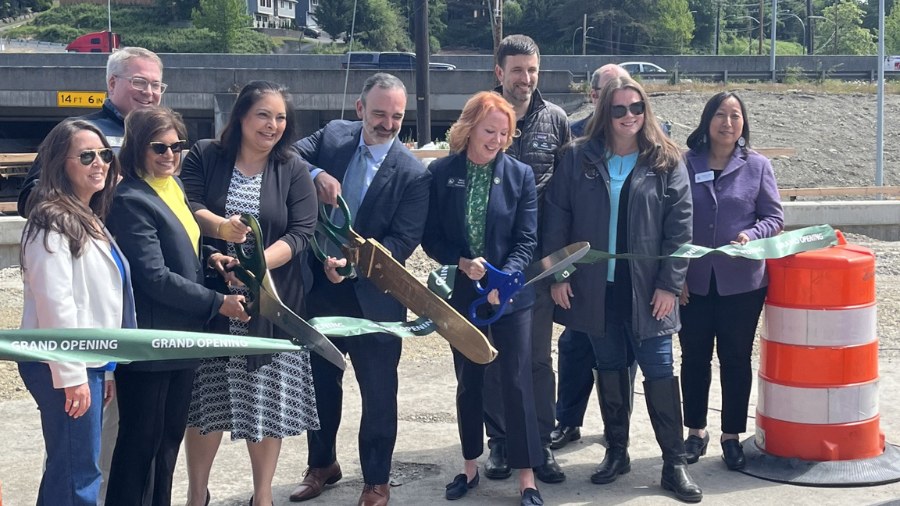City of Seattle ‘unconstitutional’ when clearing homeless encampments
Jul 25, 2023, 5:30 AM | Updated: 12:07 pm

In an aerial view, a homeless encampment, known informally as "Dope Slope" stands covered in garbage near downtown Seattle on March 12, 2022 in Seattle, Washington. The city government is currently working to remove such encampments from shared spaces throughout Seattle. (Photo by John Moore/Getty Images)
(Photo by John Moore/Getty Images)
The City of Seattle has been “too broad” in defining when it can clear homeless encampments, a King County Superior Court judge ruled. The city may also be acting “unconstitutionally” by not giving enough notice to people who are in encampments.
According to a report in The Seattle Times, the ruling could have a big impact on how the homeless are treated.
The judge ruled that part of the city’s approach to homeless encampments was “unconstitutional.”
The American Civil Liberties Union of Washington filed the lawsuit in 2019 on behalf of people who had belongings taken during encampment clearings.
In the case, Kitcheon v. City of Seattle, the plaintiffs said that personal property was often destroyed, rather than stored.
It also brought up the issue of prior notice as plaintiffs accused the city of not having consistent standards.
Tim Robinson, spokesperson for the Seattle City Attorney’s Office, said the city plans to appeal the judge’s decision and that they are still reviewing the case.
Whether or not the city successfully appeals the decision, the case could help to formalize the protections and limitations that municipalities must follow when removing homeless encampments.
A key element of the case is how to define “an obstruction.” For example, are tents on sidewalks obstructions vs. tents in parks?
“Obstruction” is a critical piece of Seattle’s current public camping ban because it allows city staff to remove people from a site immediately without requiring notice.
Whether shelter is offered or what happens to personal belongings are also items the court ruled as “inconsistent.”
The judge said that policy gives permission for the city to illegally infringe upon homeless people’s constitutional rights.
“We’re very happy that he’s made these decisions,” said John Midgley, senior staff attorney for the ACLU of Washington, who has been working on the case. “Time will tell what changes may or may not be made or what else might happen.”
A trial on additional aspects of the four-year long case is scheduled for September.













